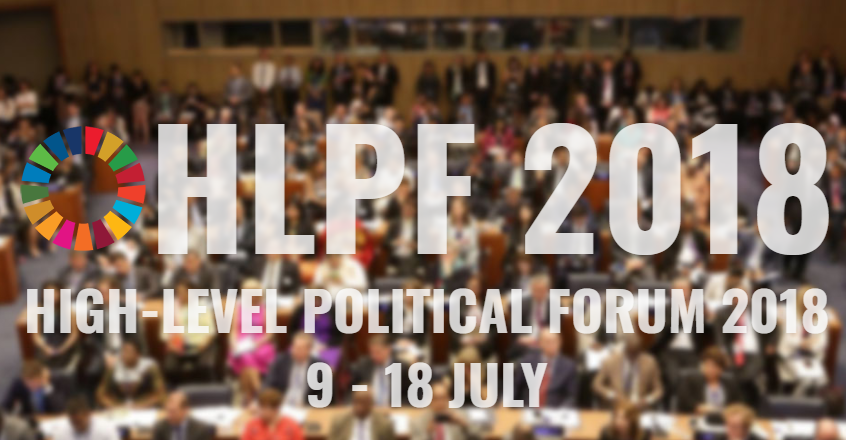
22:20
And that’s a wrap!
Huge thanks to the civil society delegation who fed information, tweets, links and updates from New York (including Freyja Bourke, Deirdre Carolan, Anne Carthy, Paul Dockery, Valerie Duffy, Michael Ewing, Heydi Foster, Lauren Flanagan, Frank Geary, Suzanne Keatinge, Pierre Klein, Elaine Nevin, Patrick Paul Walsh and Caitriona Rogerson), Coalition 2030, the official delegation (including Denis Naughten, the Depatment of Communications, Climate Action and Envionment, the Department of Foreign Affairs and Trade) and to readers for sticking with this experiment in #Ireland4SDGs #HLPF2018 live-blogging.
22:15
Six takeaways from Ireland’s first VNR for Sustainable Development
- Ireland is seen as a leader in involving young people in national SDG processes and decision-making opportunities. This is striking for a number of reasons, particularly for those that have been working in non-formal education and action project contexts. Many country representative observers congratulated Ireland on involving young people to present the youth voice as part of the official delegation time slot. The youth delegates, Paul and Laura, were the stand-out highlight contributions for a number of observers to Ireland’s VNR. Minister Naughten’s Department, team, Irish Aid, the Department of Foreign Affairs and Trade and the National Youth Council of Ireland played a blinder – as anyone familiar this has been years in the making.
- In a response to a question from the Lithuanian representative, Minister Naughten talked with a sense of ownership, and dare I say it, pride, leaning into the fossil fuel divestment bill that sailed through a parliamentary vote in the Dail last week when talking about wanting to ‘take dirty fossil fuels out of electricity and energy’ and stimulate investment in sustainable and renewables. Capitalising on wins such as this, as the Minister did, is crucial for advancing incremental change. How this change happened is a whole other story that has been underwritten by movements for change that have been active for many, many years, sometimes a decade (and more) in the making. Remembering the work of the Stop Climate Chaos Coalition, Trócaire, passionate politicians, the Global Legal Action Network and others has been vital in building pressure and making the case for change by demonstrating how this can happen (note: see check out the divestment campaign of Fossil Free TCD to see what I mean.
- A fundamental challenge to “transforming our world” by moving beyond geographic and inward looking national silos includes moving beyond policy silos where one government department or group of officials knowingly acts in complete contradiction to another on a similar issue. This may be harder in practice than it sounds against a lifetime of conditioning by wearing grooves into shoes that practice then follows, step by step. Reconciling human rights-based approaches overseas, for instance, with human rights approaches to business at home (with an impact overseas) is no easy task, and so must be stated again and challenged to bring about a whole-of-government approach instead. (As an aside, I avoided using the terms ‘policy alignment’ and ‘policy coherence’ as they have the potential to come off as buzzwords and jargon, which there’s plenty of for one day).
- The role of learning about the SDGs and through the SDGs has yet to reach a tipping point of engagement and activity that isn’t only an agenda for schools. Life long learning, active citizenship and demonstration projects and initiatives can be at the centre of building a threshold of public engagement and meaningful dialogue that is constructive and open for many to participate in. Listening closely to what civil society organisations have been asking and commenting on means enabling different kinds of spaces that can build support for a new consensus on what sustainability means beyond local narrow interests alone. Connecting with the shape, size and reach of our global footprints
- Thirty minutes to cover progress and issues raised in Ireland’s VNR report, with responses from civil society is a stretch. In saying that, it gave audiences and participants a whistle-stop tour of the key issues Ireland is concerned with, including housing, climate change, sustainable consumption and production, peacekeeping, gender impact audits, disarmament as well as development cooperation that does more with small island developing countries, West and North Africa, the Middle East and Latin America. Summing up, Minister Naughten stated that, “We will all have to leave our comforts zones, if we are to achieve a just transition that recognises the needs of all our people, sectors and communities…[and that] we are determined to show the same global leadership in the implementation of the SDGs.”
- As the first national voluntary review on Ireland’s progress on the Sustainable Development Goals there was an undeniable bulwark of stakeholders, critical supporters and representative groups invested in delivering on the letter and the ideals of the Goals (and targets). There is much room for improvement, undeniably so, and after three years of activity on the SDGs there was a mixed sense of frustration, empowerment and fortitude today for the long road to 2030 we have yet to travel based on the pace and evidence to hand. Getting access to and building decentralised and reliable data sources on progress on the SDGs rang through across all countries under review today, including Ireland.
21:35
Leaving Palestine behind
For anyone that stayed with the remaining country reports from session 2 on the UN Web TV live cast of the HLPF they would have been disturbed by the input on the last country report of the day by the Palestinian representative. Speaking to the core agenda of the Sustainable Development Goals, and a key principle and motto which has come to define how governments should think about making sure to ‘Leave no one behind’, six members of the the Palestinian delegation were denied visas by US authorities.
The permanent mission to the UN representative from Palestine, now left with the role of speaking on behalf of the six members of the government’s delegation, with piercing sadness, said:
“I just want to tell you that the State of Palestine cannot be left behind.”
It’s impossible to divorce the politics from the agenda to “transform our world”, particuarly when it concerns officials denying access to participate in the UN system at, of all things, an accountability mechanism like a High-level Political Forum. Its worth quoting a section of the Palestine Voluntary National Review at this point as a reminder of the context that SDG advocates face, officials and nonofficials alike. This from page 6 of the VNR:
A large number of non-governmental organisations are clearly uncomfortable with the news of US officials denying visas to the Palestinian delegation, excluding them from the HLPF, as it overshadowed the conclusion of the session in what was, in general, a supportive national review exercise on a global platform. For Irish civil society members in the room, the news filerting through had a particular resonance on foot of the cross-party vote which passed in the Seanad (Irish Senate) supporting a new bill which would ban imports (goods and services) from Israeli settlements.
- Check out the State of Palestine VNR report, lodged on the Sustainable Development Knowledge Platform along with other country VNRs
18:35
Tea break! Will be back in a couple of hours for the summary and wrap up.
18:30
An interesting show of support from other departments to Minister Naughten and his team today from across government. Great to see the departmental Thunderclaps on the day. A strong signal of things to come (which Departments weren’t a part of the Thunderclap today I wonder…).
It takes the world to change the world! Today at #HLPF18 , Minister @DenisNaughten presents Ireland’s first Voluntary National Review. By sharing our experiences of the #SDGs, we can all help make #Agenda2030 a reality – at home and abroad. #Ireland4SDGs https://t.co/tKzyj3YXFD pic.twitter.com/YGOSbR7hXz
— education.ie (@Education_Ire) July 17, 2018
It’s not just #Ireland4SDGs – it’s #IrelandsYouth4SDGs! Great video from @Irish_Aid https://t.co/qHNiEfh0fN
— dccae.gov.ie (@Dept_CCAE) July 17, 2018
It takes the world to change the world! Today at #HLPF18 , Minister @DenisNaughten presents Ireland’s first Voluntary National Review. By sharing our experiences of the #SDGs, we can all help make #Agenda2030 a reality – at home and abroad. #Ireland4SDGs https://t.co/cr8z3VO1Pk pic.twitter.com/vemSaLwU0q
— Department of Finance (@IRLDeptFinance) July 17, 2018
@DenisNaughten will address the United Nations today where he will present Ireland’s progress report on the implementation of the 17 global Sustainable Development Goals https://t.co/OqBuDgGRGv @merrionstreet #SDGs #Ireland4SDGs #HLPF2018 #Coalition2030 @UN #HLPF2018IRL pic.twitter.com/nqy2ILnECh
— dccae.gov.ie (@Dept_CCAE) July 17, 2018
18:09
- The Irish government’s voluntary national review submission – submitted to the UN, this is the official report submitted by Ireland to the UN as part of the High-level Political Forum 2018
- The civil society perspective – ‘We have a long way to go’ on Sustainable Development Goals’ – Dr Sean Healy, Director of Social Justice Ireland and speaking on behalf of the Irish Coalition 2030, criticises Ireland’s progress on implementing UN SDG, as Irish Government prepared to present its first progress report at United Nations. The shadow report published by Coalition 2030 is a crucial baseline developed by civil society on how the SDGs are seen in practice
- The open public call for submissions to the VNR – a compendium of contributions was gathered of submissions of less than 500 words each, which many typical and non-typical stakeholders made in the lead-up to the UN review of Ireland’s progress. For example, short submissions included a meat processing business, a private fisheries business, a road transport business, an all-girls debating team and an electricity association.
- Youth survey report on the SDGs, led by Ireland’s youth delegate. A Generation for Change: Spotlight Report on Young People, the Sustainable Development Goals and Ireland is a report published in 2018 by the National Youth Council of Ireland that details issues that are affecting young people at a local and global level; how these issues relate to the SDGs; and Ireland’s commitments in relation to these.
- The Sustainable Development Goals National Implementation Plan 2018 – 2020 is in direct response to the 2030 Agenda for Sustainable Development and provides a whole-of-government approach to implement the 17 Sustainable Development Goals (SDGs) as well as a strategic priorities focus on awareness raising, participation, support and policy alignment. The NIP is the key policy document on the SDGs, currently led from the government’s perspective by the Department of Communications, Climate Action and Environment.
17:55
“Ladies and gentlemen, permit me to introduce … Team Jamaica!”
Is it just me, or is the Jamaican representatives introduction to the HLPF the best opener of the day with an energetic roll-call of the delegation that includes the main electricity public service (Jamaica Public Service), the Planning Institute of Jamaica and the deputy director general of the Statistical Institute of Jamaica.
Following the promo video, the rep followed up: ‘makes you want to dance, right?’
Yes, it really does! [will dig out and re-post]
17:43
Key tweets on the session from our boots on the ground observer, Freyja Bourke of Friends of the Earth Northern Ireland.
“We need to do much more.” “The SDGs are about implementation, not ideology.” “We must engage civil society and government in every aspect of the SDGs.” @DenisNaughten @UNYouthIRL @foeireland #Ireland4SDGs #HLPF2018 pic.twitter.com/hRgQSoVd1y
— Young FOENI (@YoungFoeNi) July 17, 2018
“Ireland is playing catch up” absolutely. When will we stop talking about developing countries as ‘partnerships in Africa’ and start addressing the serious environmental problems endemic within our society? #Ireland4SDGs #HLPF2018
— Young FOENI (@YoungFoeNi) July 17, 2018
On the inclusion of Ireland’s youth delegates Laura Flanagan and Paul Doherty, Laura states:
“Thank you for including us as this proves that Ireland understands the importance of youth” @UNYouthIRL @unmgcy @foeireland #HLPF2018 #HLPFyouth #Ireland4SDGs pic.twitter.com/gTFXqrxyrg
— Young FOENI (@YoungFoeNi) July 17, 2018
“the VNR lacks specific detail on how these people (those left furthest behind) will be included” @DuffyValerie @foeireland pic.twitter.com/67brOobDe5
— Young FOENI (@YoungFoeNi) July 17, 2018
And some replies from Minister Naughten:
“By 2030 we want dirty fossil fuels taken out of electricity and energy” “hopefully stimulate investment in sustainable and renewables” Naughten capitalising on the fossil fuel divestment bill earlier this week #Ireland4SDGs #HLPF2018
— Young FOENI (@YoungFoeNi) July 17, 2018
“We do need to improve our communication strategy. We do need to work across government. We do need to look at the verified data.” @DenisNaughten final statements #Ireland4SDGs #HLPF2018
— Young FOENI (@YoungFoeNi) July 17, 2018
The Minister’s address and the address by Youth Delegates Laura Flanagan and Paul Doherty was recorded by someone sitting on the front row. Handy one!
— Denis Naughten (@DenisNaughten) July 17, 2018
17:29
Scooping up the questions / observations put to the Irish representatives (there were plenty!):
UK representative: welcome the focus on less advantaged groups in the realising of the SDGs
Lithuania representative:
“I welcome the youth involvement and youth forum work.
What I liked the most from Ireland’s VNR is the focus on social care.
How does Ireland’s decision to divest from fossil fuels publicised last week support future environmental and climate change policy?”
Niger representative:
What are the mechanisms that Ireland has implemented to involve young people as you implement the SDGs? We want to get inspiration from Ireland’s approach to date and would value share it with us.
Children and Youth Group representative, Valerie Duffy:
16:54
Huge strides and ambition in Irish foreign affairs:
“We are a strong and consistent champion for disarmament and the need to restrict the use of nuclear weapons. This is why we are seeking election to the UN Security Council in 2020.
Our international development cooperation and our humanitarian action, along with our work at the UN on human rights, peacekeeping, disarmament and security, is at the heart of our efforts to create a more secure, stable and inclusive world.
Our own history of famine, conflict and migration propels Ireland’s international outreach and engagement.
This is why our aid, when it is provided, is 100% untied.”
16:51
Minister Naughten is on his feet, placing young people front and centre.
“Excellencies, Ladies and Gentlemen,
I thought we should start by hearing the voices of Ireland’s young people, because issues at the core of the Sustainable Development Goals, such as quality education, a clean environment, economic opportunity, and peaceful and inclusive societies, all impact on young peoples’ quality of life today, as well as in the future. “
Ireland on the panel now, @DenisNaughten and video highlighting the inclusion of children and youth on the #SDGs in #Ireland4SDGs including the @UNYouthIRL who will soon get to speak pic.twitter.com/BnHOrsGykC
— Young FOENI (@YoungFoeNi) July 17, 2018
16:44
This just in from Freyja:
The Armenian representative stated “I can confidently say that the Armenian government is led by young people, I encourage other member states to engage and involve young people”. He said approx 50% of gov. members to be under 30 #Ireland4SDGs #HLPF2018 @unmgcy @foeireland pic.twitter.com/81A11QzID8
— Young FOENI (@YoungFoeNi) July 17, 2018
Also, Ireland’s presentation has JUST STARTED. Catch it at UN Web TV streaming live.
16:39
Hey Armenian civil society! We’re open to constructive dialogue but not interested in politicising the SDGs – Armenian rep [paraphrased]
16:33
An interesting report from the World Resources Institute on how responsibility for the SDGs within governments has been assigned.
7 out of 8 countries choose environment ministries to steer #NDCs while entrusting #SDGs to presidential offices, planning or finance ministries. This siloed approach makes little sense. Read new @WRIClimate and @GIZ_gbmh research. https://t.co/9YhhVBAtIR #HLPF2018 #globalgoals pic.twitter.com/O8uN9TUutF
— WRI Climate (@WRIClimate) July 17, 2018
16:22
Its been a busy week. On Thursday last week the Department of Foreign Affairs and Trade, along with Irish Aid, launched the public consultation to review Ireland’s international development policy. It was, by all means, a strong event with a highlight at the Q&As with Tánaiste and Minister for Foreign Affairs and Trade Simon Coveney’s sharing some candid remarks about Ireland’s role and the opportunity to consider the political economy of development, and not just economic development, as a small island with a global footprint.
Tánaiste: new policy will change our dev landscape.Public insights & direction will help refine our thinking & we encourage all to take part pic.twitter.com/8p84prqrcM
— Irish Aid (@Irish_Aid) July 12, 2018
The public consultation will contain a number of opportunities to make a contribution – which everyone from the public, academics, small organisations and groups as well as larger NGOs are invited. Essentially anyone who is interested can get involved:
- the public consultation process will run from now until early October.
- The deadline for written responses, is 5pm on Thursday 23 August.These should be sent to whitepaperconsultation@dfa.ie
- There will also be a number of public consultations happening around the country (Dublin, Cork, Limerick, Galway and Sligo) in September and early October – dates to be confirmed.
- You can find out more and download the consultation paper here.
The four main questions for the consultation are:
- What elements of Ireland’s international development experience should the new policy reflect?
- What are the implications of the changing global context for Ireland’s international development cooperation and humanitarian action?
- Do the proposed priorities respond to the changing context and contribute to the achievement of our vision of a more equal, peaceful, sustainable world?
- How can we improve delivery of Ireland’s international development cooperation and humanitarian action?
16:08
Session 1 adjourned and after a quick biscuit break, onto session 2. The Irish delegation will begin their presentation at 16:30 but I’d suggest checking out the webcast now at UN Web TV. Placing the challenges of realising the Sustainable Development Goals within a global forum of dialogue is building an interesting and vital picture of global solidarity and shared struggles.
This may sound a tad fluffy but imagine a global agenda as ambitious as this speaking and reporting into national silos alone. Refreshing to listen to the work to realise the SDGs on a global context with many perspectives with geographical insights and realities.
Next up, Armenia, Ireland, Jamaica, Namibia and the State of Palestine.
15:49
Pictures paint a thousand words. Here are six visual highlights from Coalition 2030’s shadow report to Ireland’s review at the UN, published today.
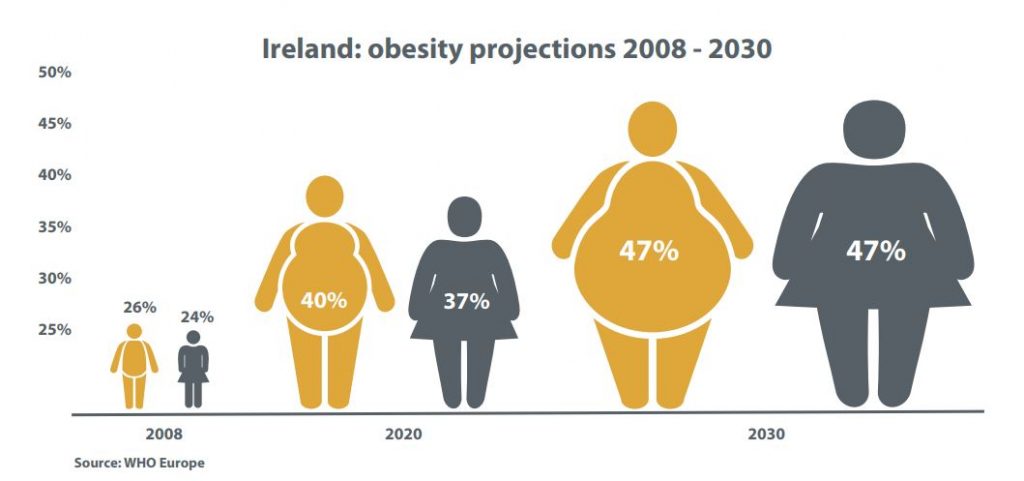
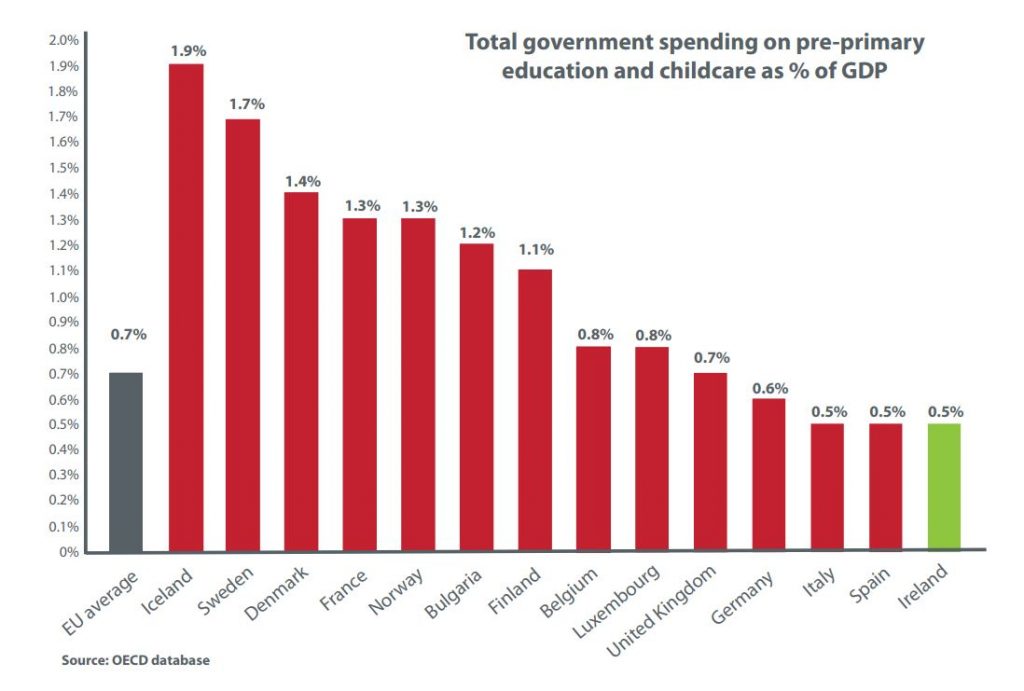
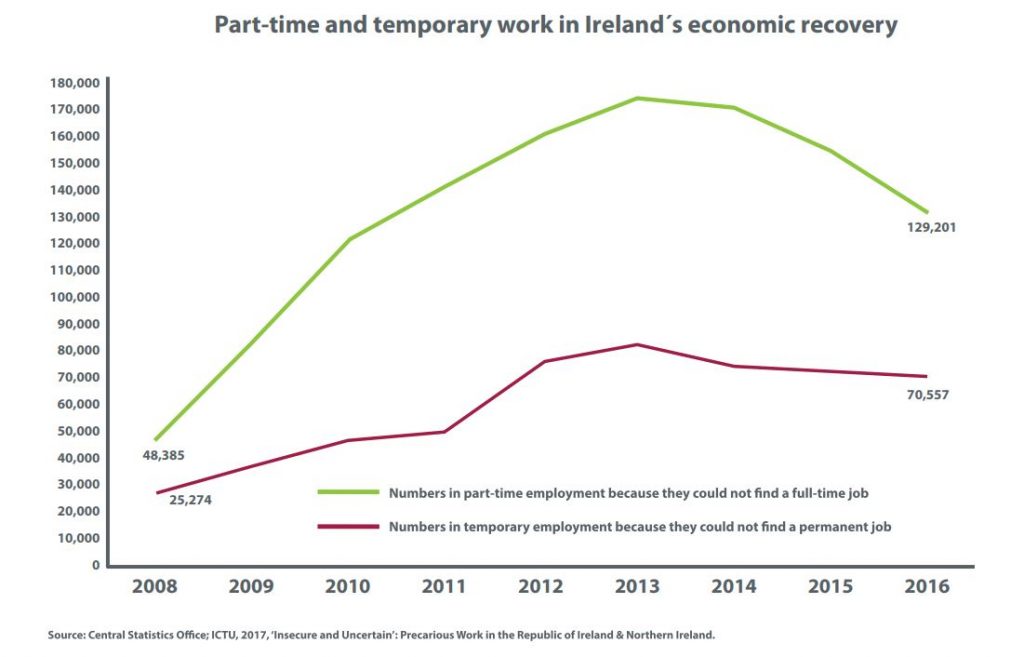
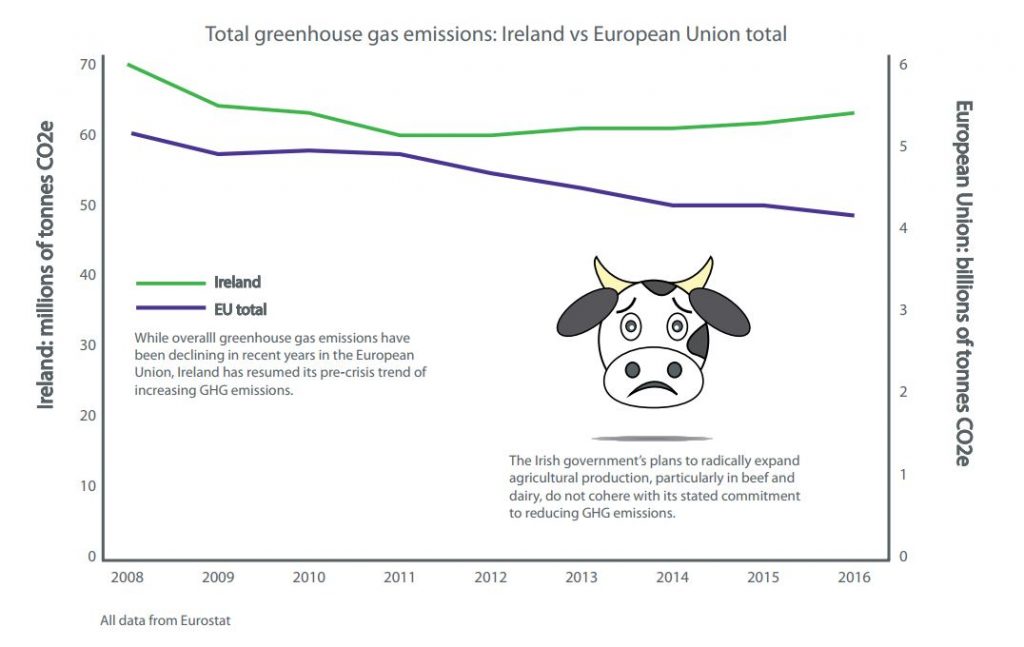
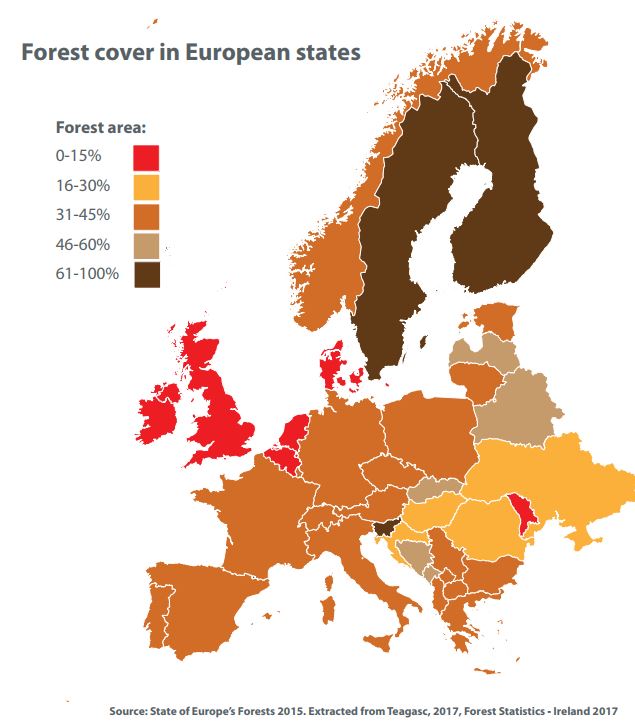
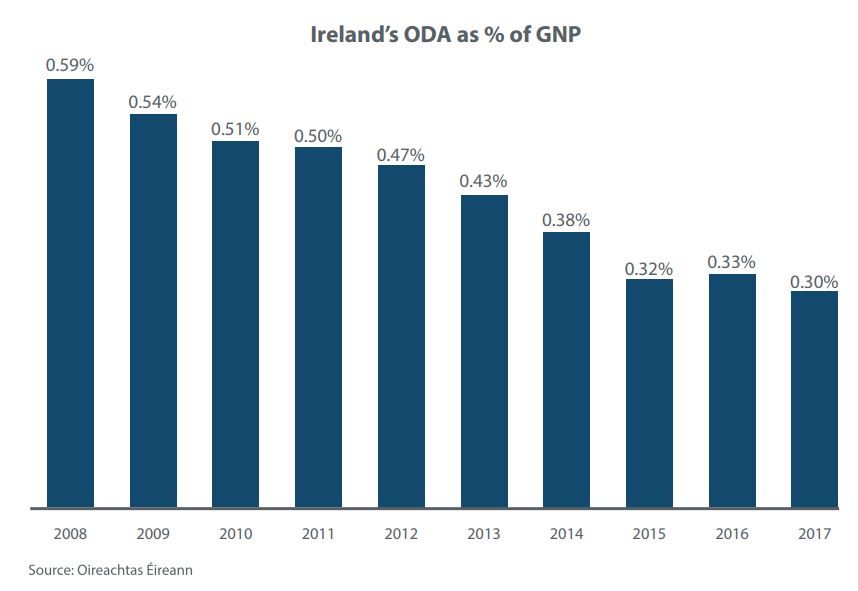
15:11
Great to hear so many civil society members represented and included in the official delegation of the Sudanese VNR with speaking time.
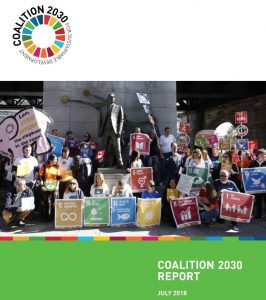 The shadow report published today by Coalition 2030 is 87 pages long, so here are the top line arguments from the with regard to Ireland’s implementation of the SDGs and in the lead up to the national voluntary review:
The shadow report published today by Coalition 2030 is 87 pages long, so here are the top line arguments from the with regard to Ireland’s implementation of the SDGs and in the lead up to the national voluntary review:
- Arguably the greatest threat to Ireland’s implementation of the SDGs is a pronounced lack of policy coherence. This issue is particularly manifest in Ireland’s poor performance in reducing greenhouse gas emissions and its continuing role in facilitating aggressive tax planning by multinational companies
- The continuing shortfall in budgetary allocations to overseas development aid (ODA). While it must be recognised that Ireland’s strategic prioritisation of Least Developed Countries (LDCs) in this arena coheres well with the promise to ‘leave noone behind’, its fiscal commitment to ODA stood at just 0.3 percent of GNI in 2017, which is less than half of the 0.7 percent target agreed to by OECD nations in 2000
- GHG emissions have been increasing rapidly in Ireland with the economic recovery and the country is forecast to miss all reduction targets committed to under Europe 2020 plans
- Being mindful that the role of international tax avoidance in undermining sustainable development, particularly in the Global South, is widely recognised, Ireland’s fiscal policies are not compatible with its SDG commitments
- Lack of space for meaningful civil society participation. The social partnership model, which underpinned policy design and implementation for decades in Ireland, was discontinued during the country’s economic crisis4 as a sustained austerity programme was imposed which severely exacerbated levels of inequality, long-term unemployment, and child poverty, reduced environmental protection and fuelled a plethora of other challenges for Irish society. The National Implementation Plan pledged to establish a National Stakeholder Forum, the first meeting of which was recently held. This is welcome as a means of engaging civil society and other actors more deeply in the SDG process, but its mandate must be clarified, and it must facilitate robust rather than tokenistic participation
- The provision of better quality, more frequent and fully disaggregated data across all of the SDGs. Although the Central Statistics Office has established a dedicated online portal for data relating to the SDGs, many of the SDG indicators are not covered and much of the information that is available is either out of date or insufficient to identify trends over time. This issue is particularly pronounced with regard to the environmental goals, for which many indicators have never been studied in Ireland. Data availability for the economic goals is somewhat stronger, but under the social goals poor disaggregation for sectors including migrants and the LGBTQI+ community effectively precludes effective civil society monitoring
Catch the full report at https://www.ireland2030.org/report-2018
14:41
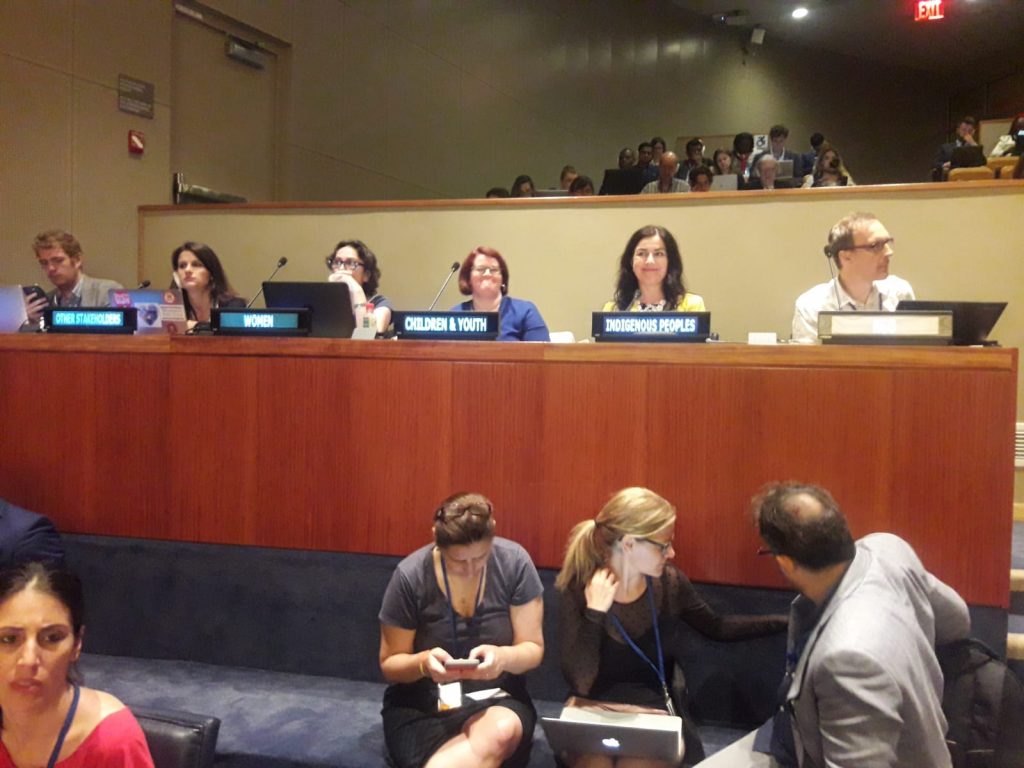
14:35
A lot of activity on Twitter today, particularly from Coalition 2030, an alliance of over 100 civil society organisations working together to ensure Ireland keeps its promise to achieve the Sustainable Development Goals (SDGs), both at home and abroad. Some may have heard Fr Sean Healy of Social Justice Ireland earlier today on Morning Ireland on RTÉ Radio 1 discussing the report.
Today Ireland will present its first Voluntary National Review #VNR at #HLPF2018 on its progress on #SDGs. Work is underway but we need to build momentum. The SDGs are a pathway to address #humanrights #poverty #inequality & #climatechange. #Ireland4SDGs https://t.co/GiuOjXjbBZ pic.twitter.com/mMjqzmAg4A
— Misean Cara (@miseancara) July 17, 2018
And the shadow report authored by Coalition 2030, timed for release for today’s review in New York (which I’ll summarise next).
Ireland is falling behind on its commitment to implement the Sustainable Development Goals #SDGs – new report by @Coalition2030IR: https://t.co/Ib6kaGVCKK #HLPF2018 #Coalition2030 #Ireland4SDGs #Act4SDGs #HLPF18IRE #LeaveNoOneBehind #Agenda2030 pic.twitter.com/nxqUomrbYh
— Dóchas (@Dochasnetwork) July 17, 2018
14:13
Albania is up first; looks like the sound has been restored after a rocky start. In the meantime, Minister Naughten has been busy on Twitter warming up for the session, putting the Government’s case forward.
I’m here @UN for the meeting of world Ministers to report on how each nation is implementing the 17 #SDGs … I’ll be presenting Ireland’s progress report tomorrow #Ireland4SDGs @merrionstreet pic.twitter.com/NBouBeeTKz
— Denis Naughten (@DenisNaughten) July 16, 2018
And from the Department:
@DenisNaughten will address the United Nations today where he will present Ireland’s progress report on the implementation of the 17 global Sustainable Development Goals https://t.co/OqBuDgGRGv @merrionstreet #SDGs #Ireland4SDGs #HLPF2018 #Coalition2030 @UN #HLPF2018IRL pic.twitter.com/nqy2ILnECh
— dccae.gov.ie (@Dept_CCAE) July 17, 2018
14:04
Live footage of the session can be seen below
13:56
I think I’m early for the meeting. The coffee must be good [snapshot from UN Web TV for the meeting, with 5 minutes to go before lift off]. Can get confirmation from our people on the ground shortly.
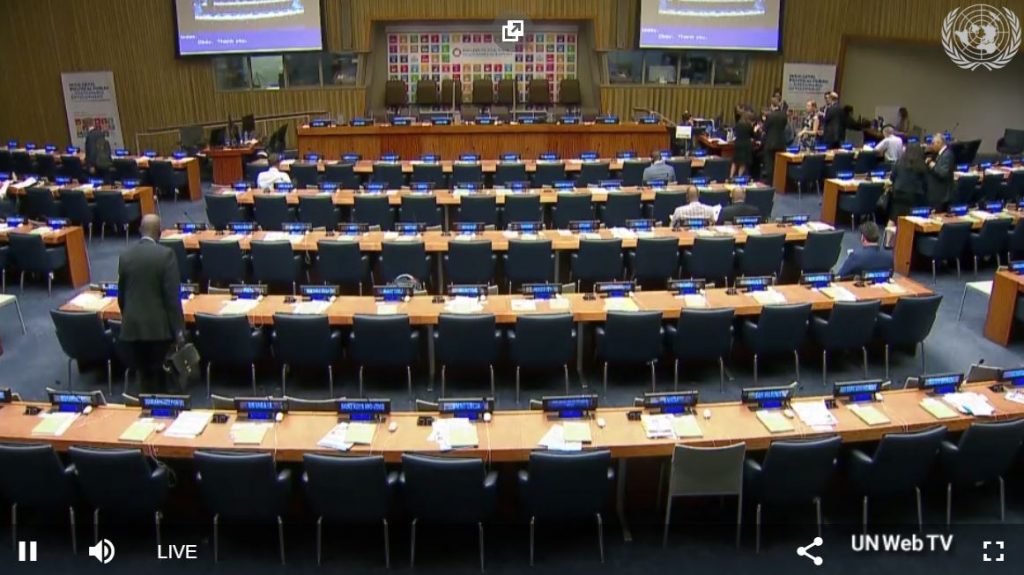
13:01
Our rolling acronym buster is ready to work.
First up, the HLPF, otherwise known as the High-level Political Forum, according to the UN:
“The establishment of the United Nations High-level Political Forum on Sustainable Development (HLPF) was mandated in 2012 by the outcome document of the United Nations Conference on Sustainable Development (Rio+20), “The Future We Want”.
The Forum meets annually under the auspices of the Economic and Social Council for eight days, including a three-day ministerial segment and every four years at the level of Heads of State and Government under the auspices of the General Assembly for two days.
The Forum’s first meeting was held on 24 September 2013. It replaced the Commission on Sustainable Development, which had met annually since 1993.
The HLPF is the main United Nations platform on sustainable development and it has a central role in the follow-up and review of the 2030 Agenda for Sustainable Development the Sustainable Development Goals (SDGs) at the global level. General Assembly resolution 70/299 provides further guidance on the follow-up and review of the 2030 Agenda and the SDGs.
The Forum adopts intergovernmentally negotiated political declarations.”
12:38
Good afternoon all and welcome to live coverage of the HLPF on Sustainable Development, better known as the voluntary peer-review of progress towards achieving the global goals for a more sustainable, more equal, peaceful world.Not to be confused with the High-Level Pharmaceutical Forum, which is also a big deal.
We’ll be catching key reactions and commentary online and from New York, breaking down the jargon as well as sharing any memes that strike the right tone between pomp and bluster.
Feel free to share info and comments with us below, on Twitter @tonykdaly @devedIreland @YoungFoeNi or by email to tony [at] developmenteducation.ie
- Freyja will be joining us from New York shortly from inside UN buildings.

